
Lý thuyết bảng tổng hợp kiến thức về cách đọc đuôi s,es tiếng anh 6
1. He and Jenny always [stretch / stretches] before exercising. 2. Anita [dress / dresses] nicely for work. 3. The bee [buzz / buzzes] by the bush. 4. Jake [mix / mixes] drinks at the bar. 5. The rockets [launch / launches] from Cape Canaveral. Pop Quiz Answers
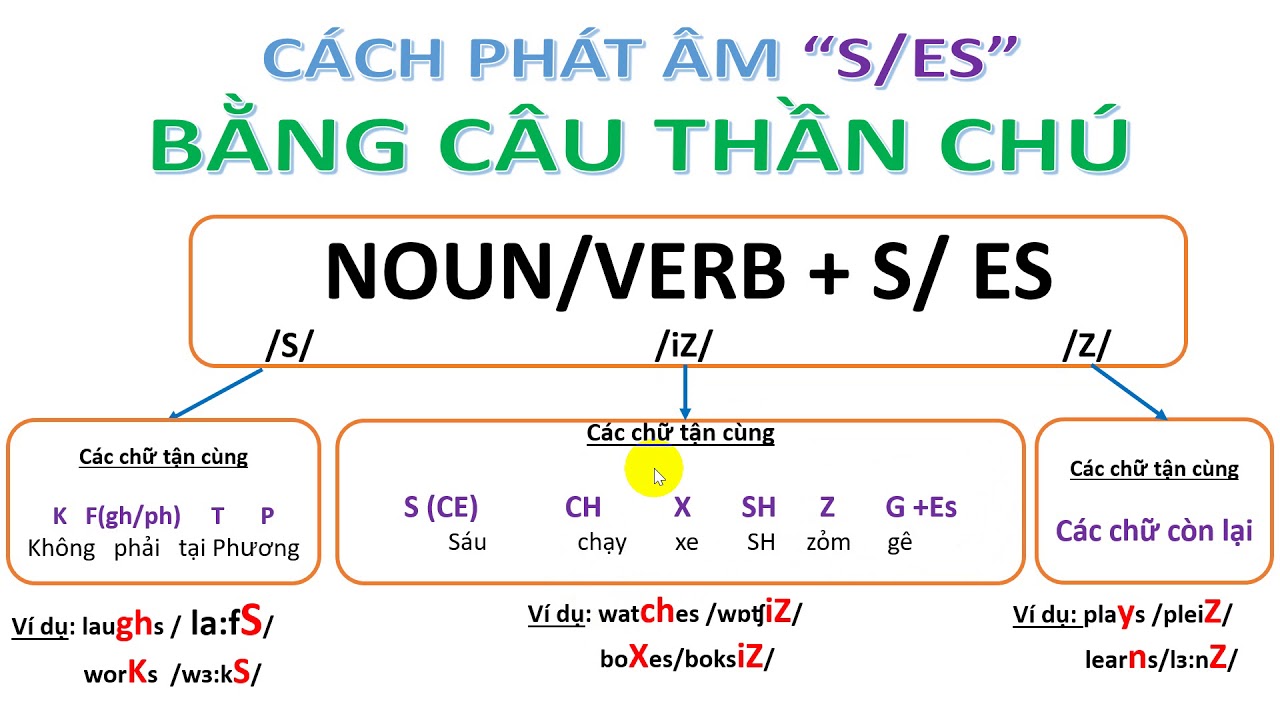
Bật mí về CÁCH PHÁT ÂM S ES trong Tiếng Anh siêu đơn giản DaoTaoVN
We usually write -es to demonstrate a change in pronunciation. It would be too difficult to pronounce an -s ending after certain similar-sounding consonants ( -s, -z,, ‑x, ‑sh, and ‑ch), which is why we need to add an extra syllable. This syllable is written as -es and pronounced as /əz/. kiss → kisses /ˈkɪs əz/.
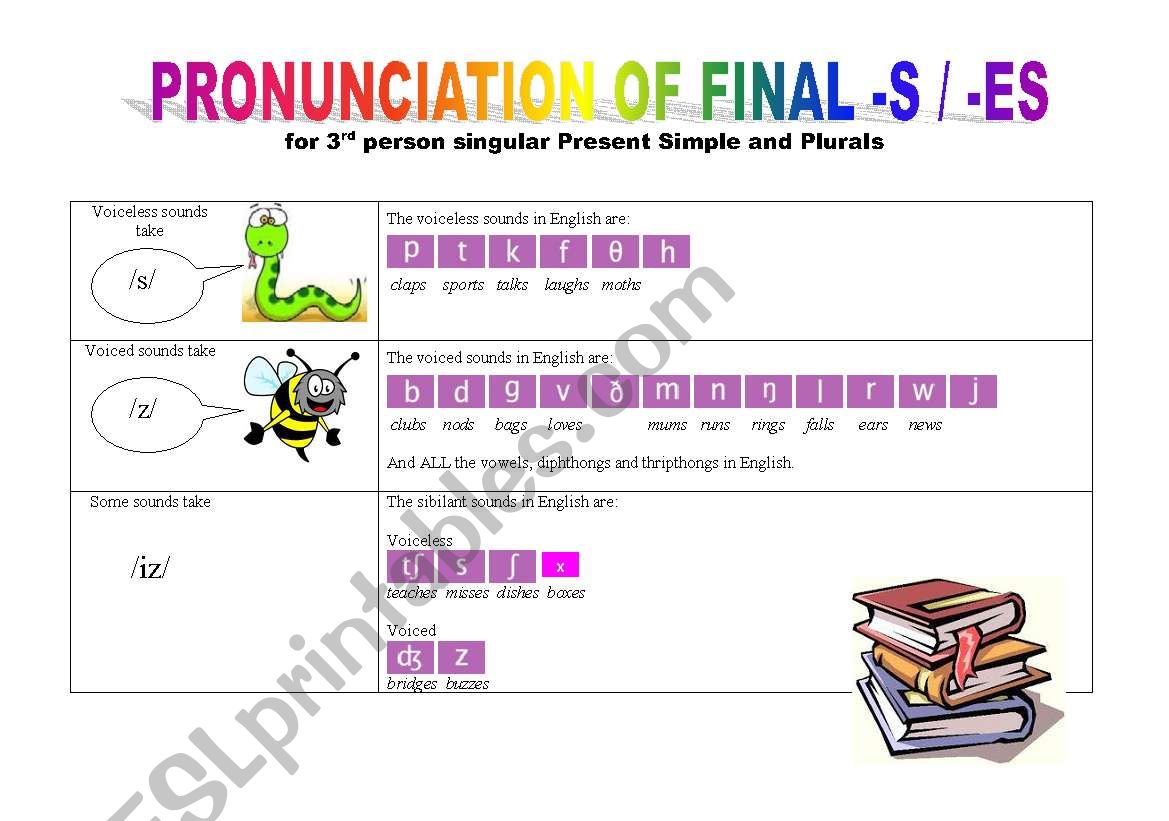
Pronunciation of final s/es ESL worksheet by escarly
Microsoft addresses 48 CVEs in its January 2024 Patch Tuesday release with no zero-day or publicly disclosed vulnerabilities. Microsoft patched 48 CVEs in its January 2024 Patch Tuesday release, with two rated critical and 46 rated as important. Our counts omitted CVE-2022-35737, a vulnerability in SQLite called "Stranger Strings" that was.
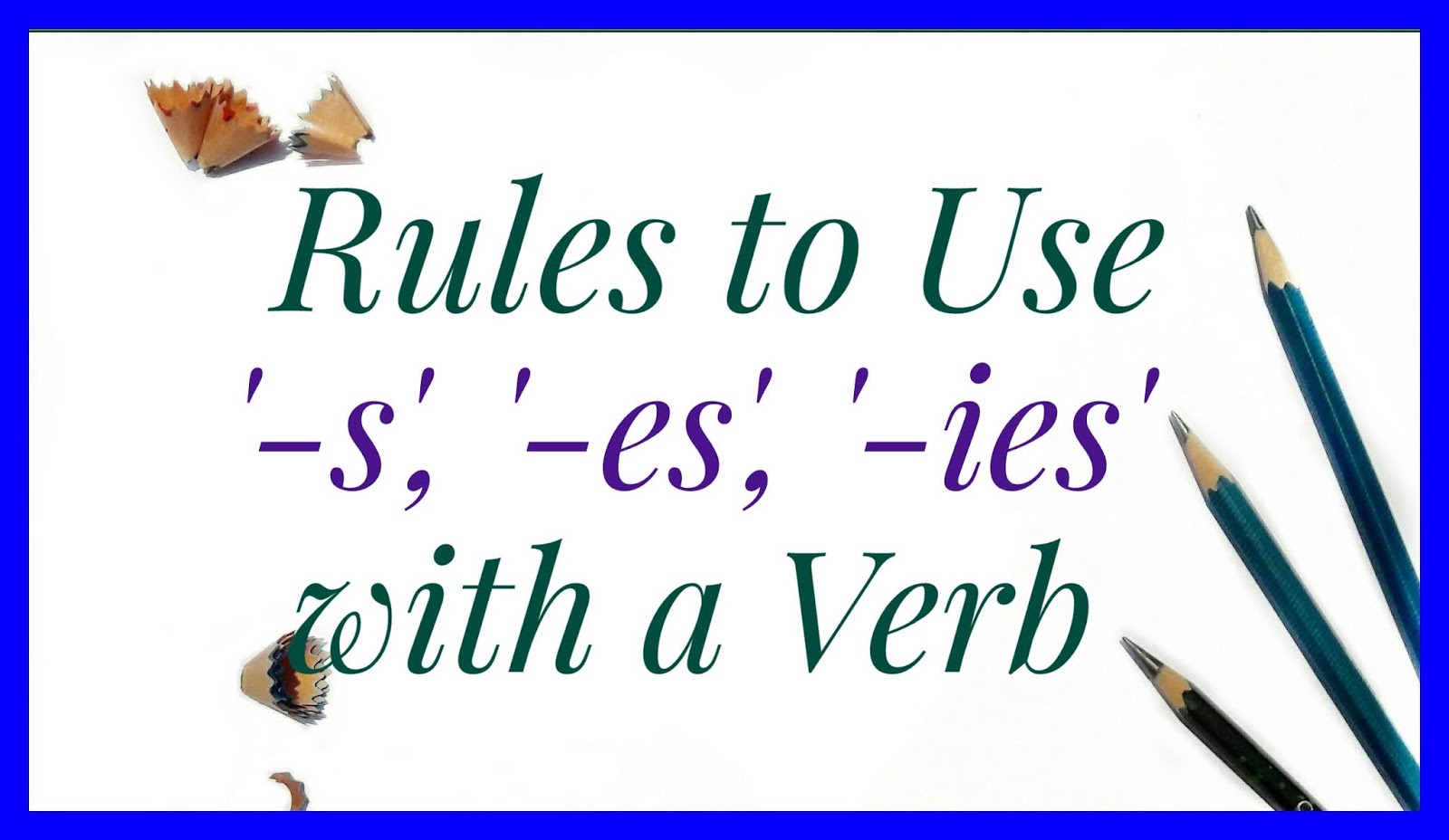
Verb with s, es, ies Eules Add s, es, ies, to a Verb to Make It Singular
What is a plural? Why do some plurals end in 's' and others in 'es'? The Plural-a-tor has the answers! Subscribe: http://bit.ly/2b6maxS Visit our website:.

When to Add S to a Verb
The Senior Executive Service (SES) lead America's workforce. As the keystone of the Civil Service Reform Act of 1978, the SES was established to ".ensure that the executive management of the Government of the United States is responsive to the needs, policies, and goals of the Nation and otherwise is of the highest quality."

Verb Worksheets, Printable Worksheets, Simple Present Tense, Verb Forms
The general rule for making a word plural is to add 's': 1 dog, 2 dogs, 3 dogs 1 town, 2 towns, 3 towns 1 book, 2 books, 3 books. When to add 'es' 1. When the singular form ends in -s or -ss: 1 bus, 2 buses 1 kiss, 2 kisses 1 class, 2 classes 1 business, 2 businesses. 2. When the singular form ends in -x: 1 fox, 2 foxes 1 box, 2 boxes
.jpg)
Opened / əʊpənd
Adding -s and -es - English - Learning with BBC Bitesize - BBC Bitesize England Early years KS1 KS2 KS3 GCSE Functional Skills Northern Ireland Foundation Stage KS1 KS2 KS3 GCSE Scotland Early.

When to Add ES to Verbs … Learn english, Teaching english, English
How many fezzes can the boy possibly have? All other regular nouns can be pluralized by simply adding an -s. These are just a few examples: I have one cat; you have two cats. I have one cup; you have two cups. I have one shoe; you have two shoes. I have one ski; you have two skis. I have one toque; you have two toques.
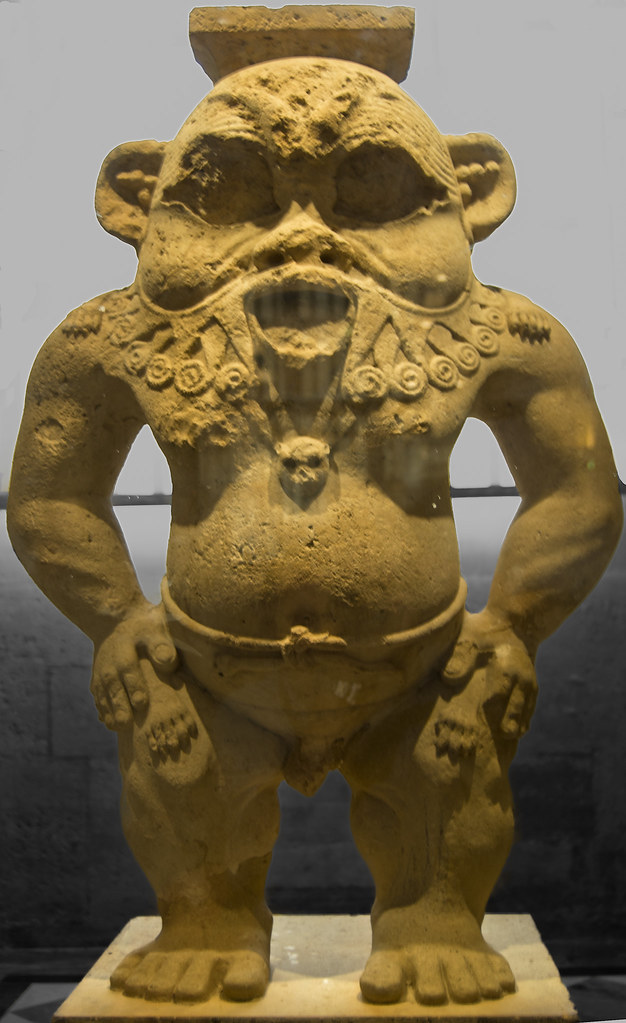
Estatua del dios Bes ( Museo del Louvre,Paris) Bes es un g… Flickr
When to use 'ies' Be careful! When a verb ends in -ay, -uy, -oy or -ey, the 'y' doesn't change to 'i': I pl ay ⇒ he plays I b uy ⇒ he buys I enj oy ⇒ he enjoys.
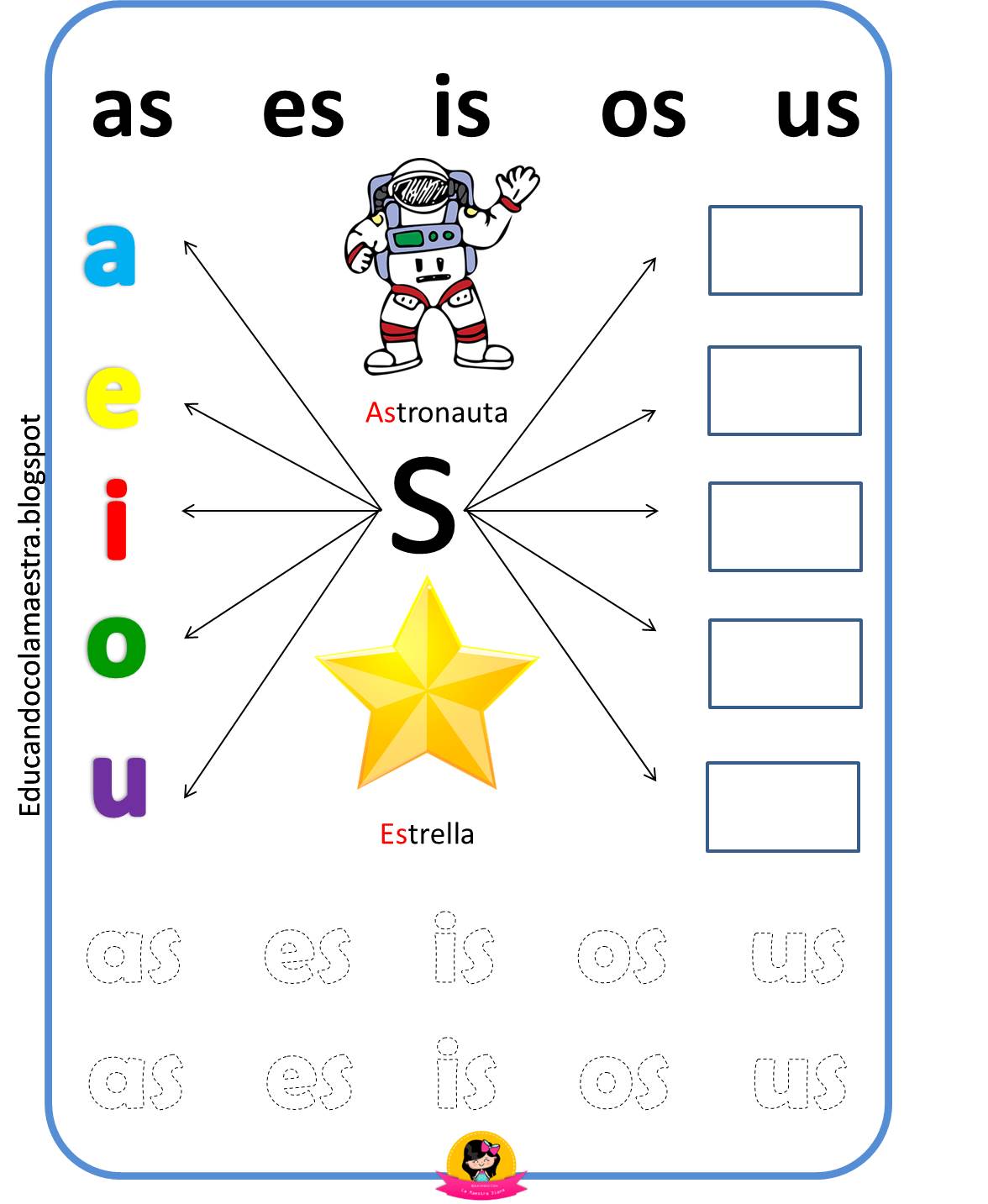
Educando con la Maestra inversa
Summary. This update addresses a security vulnerability that could allow attackers to bypass BitLocker encryption by using Windows Recovery Environment (WinRE).

Plurals add s or es Plurals Assessment Made By Teachers
The most basic rule is to pluralize a noun by adding the suffix -s (as in voters ); however, if the noun ends in -s, -x, -z, -sh, or -ch (with the exception—see, we already have an exception—of words ending in -ch pronounced with a hard k, like monarchs and stomachs ), the suffix -es is added in order to create an extra syllable to pronounce the.

plurals with s, es, ies, ves Interactive worksheet
The rule for the suffix that turns singular nouns into plurals is just the same as the rule for the suffix that adds the meaning "now" to verbs: You add the meaning "now" to a verb that ends in the sounds [s], [z], [sh], or [ch] by adding the suffix -es, and you add the meaning "now" to a verb that ends in a

PPT Pronunciation of Final S/ES PowerPoint Presentation ID2491234
You might also wonder when to add s to the end of a verb. With verbs, only those with a third-person singular noun or pronoun ( he, she, boat, courage) as a subject add an s to the end. Verbs with plural nouns and pronouns do not add s at the end. (The singular pronouns I and you likewise do not add an s to the verb.) Let's consider an example.

English Grammar Add 's' or 'es' or 'ies' Present Simple (Third
Specialties: We offer custom cakes, cookies, cupcakes, cake pops, cakesicles and more! We offer pre-orders for pick-up and delivery of our deliciously decadent sweets in Los Angeles, and ship select desserts nationwide. We do not accept walk-ins at this time. Please call us at 323-422-8885 to schedule a pick-up appointment. Life should be sweet, indulge in a Sweet E's treat! Established in.

Adding s or es to the end of plural words... Goes with a wet sort
This is a complete, foolproof recipe for teaching students to use "s" or "es" to pluralize words. Everything you do is written in normal script. Everything you say is written in bold script. Everything the student says is in italic script This rule teaches students when to use "s" and "es" to make words plural.

English With Life Verbs with "s", "es" and "ies"
Regular plurals of nouns are formed by adding -s, -es, or -ies to the singular (e.g., girls, viruses, duties).Irregular plurals also often follow a pattern, originating sometimes in the parent language or rules of older forms of English (children, criteria, oases, geese, mice, indices).Some nouns have both regular and irregular plurals (indexes/indices, formulas/formulae), one or other of.